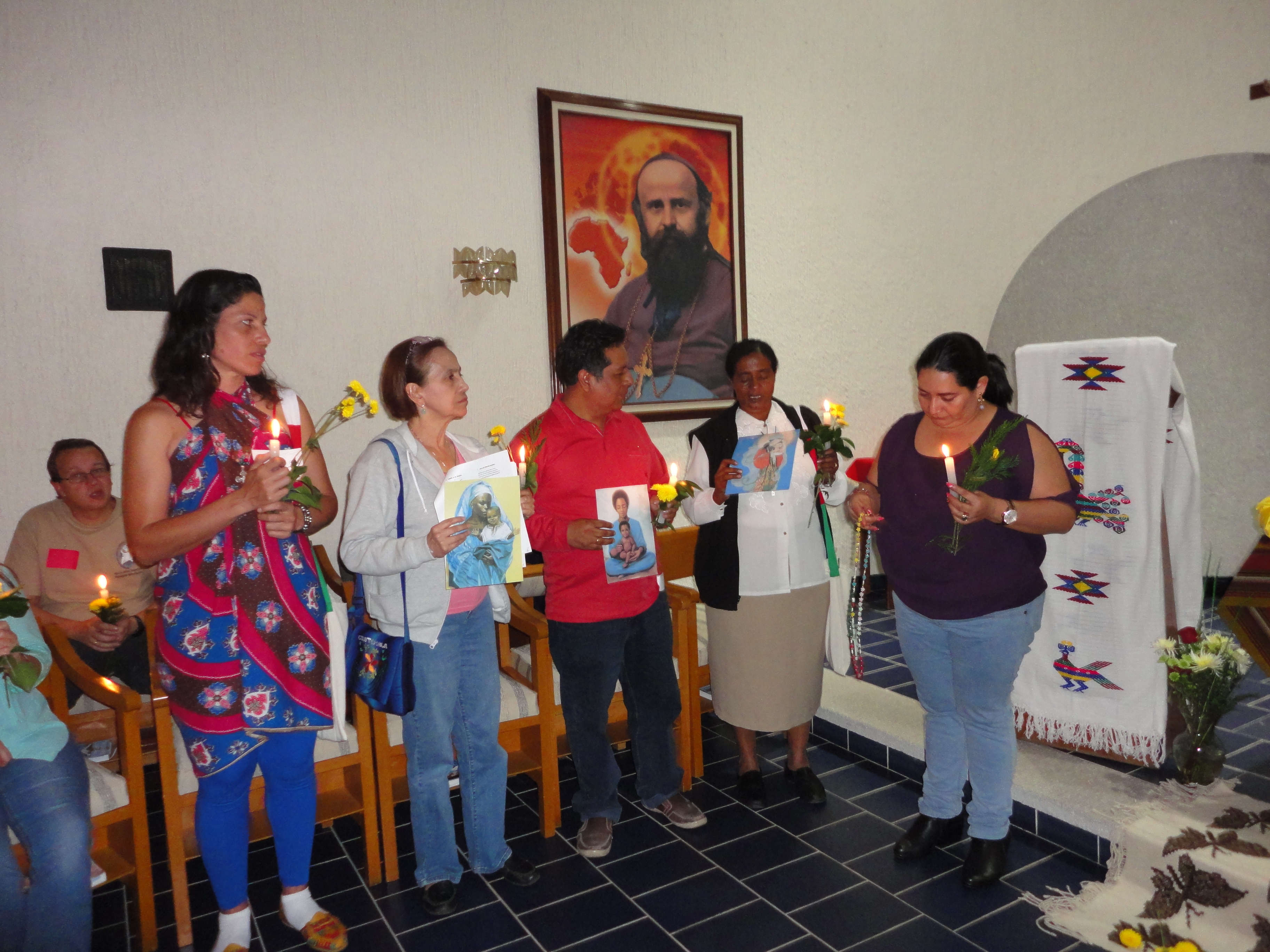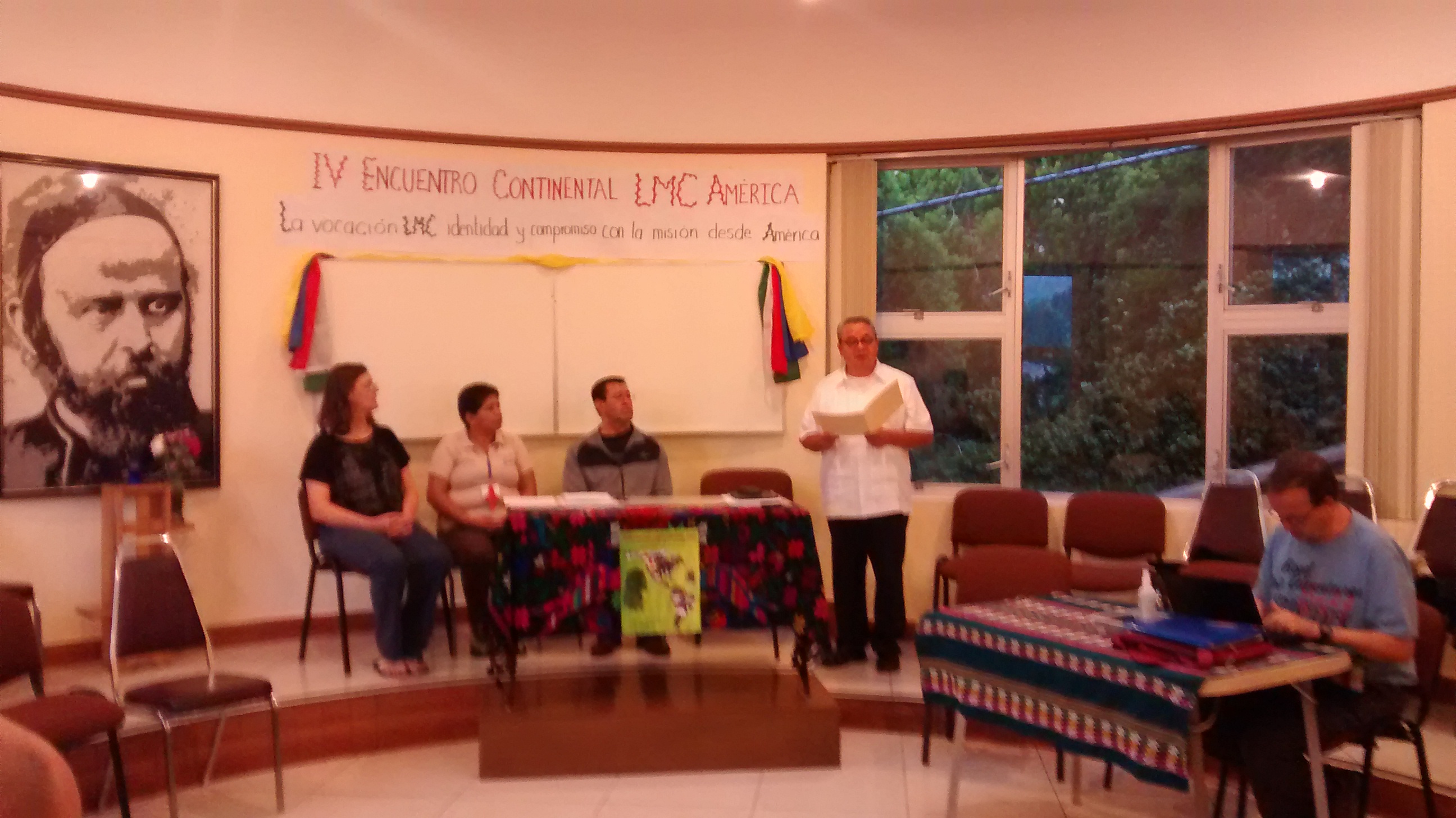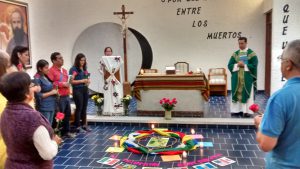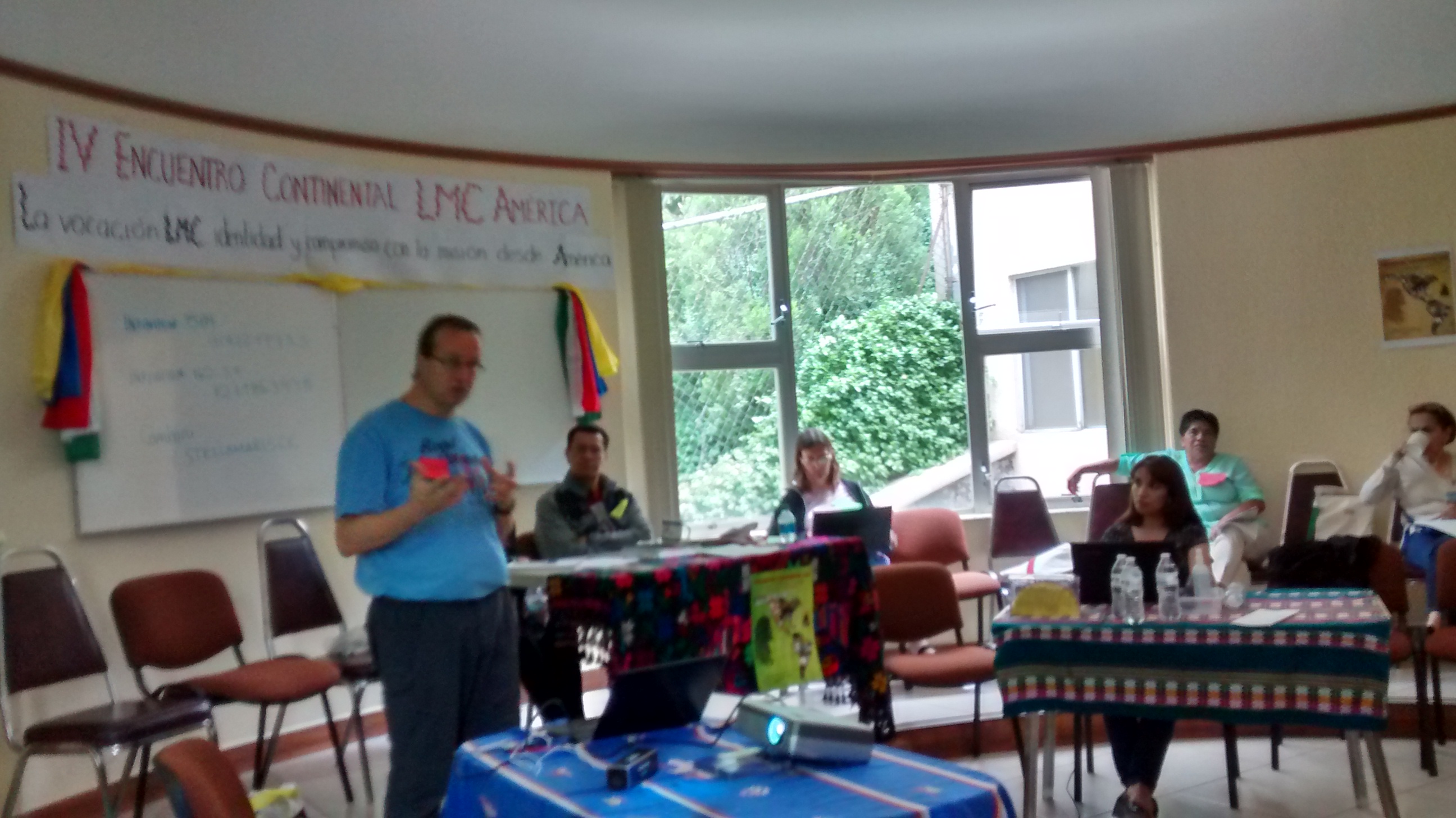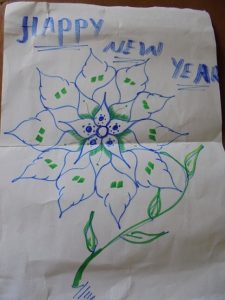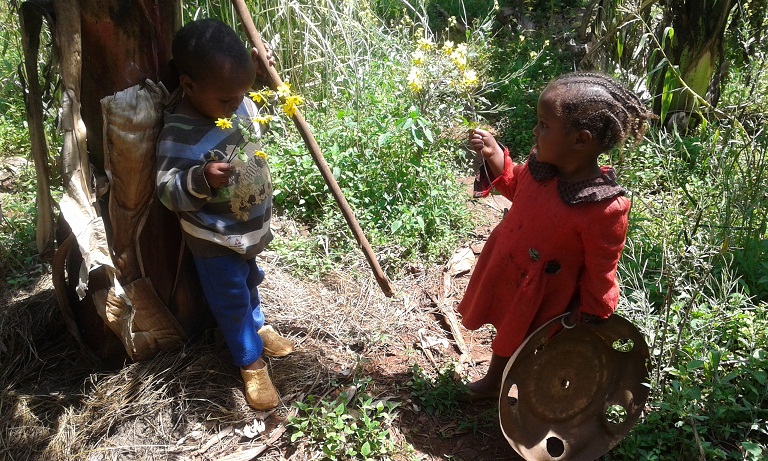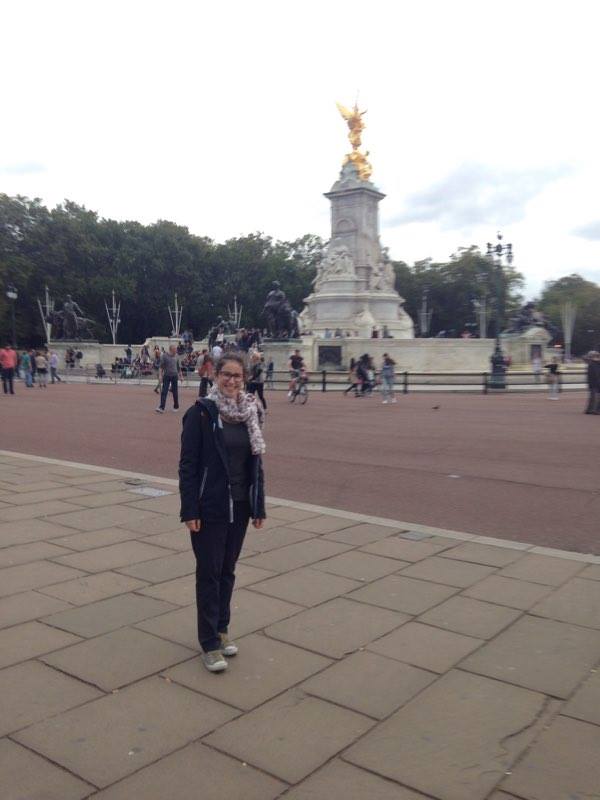
What title should I use? “one week has already passed” or “it’s only been a week” (since I came here)?
I arrived in London on September 3rd. It was almost midnight when I entered in “my new house.” Sometimes (yes, sometimes), this is not just my house, it’s more than that: it’s my home – I can feel it. [“It’s only been a week” and I’m fine here, in this community.]
Normally, we are seven persons at home – me; four priests (Father Angelo, Father Rogelio, Father Louis and Father Patrick); and two others (Paul and Amir, who joined us few days ago). But this number often changes: sometimes priests from other communities, or family / friends come to pass the night or some days with us, in our community. [“It’s only been a week” and I’ve met so many people!].
This community allows me to learn, grow and mature. We start the day together in the Chapel – for Morning Prayers and Mass. In the evening, before dinner, that’s where we return for the Evening Prayers. Slowly, I’m feeling abler to pray without peek constantly to the books (all in English!). [Sometimes I think that “it’s only passed a week and I can say a prayer without read (well, occasionally, I look to the book…); other times, if I feel some frustration for the language, I think: “one week has already passed and I still need a guide.”] Yet, the priests are very patient and encourage me to not lose the will to learn. Sometimes, they even invite me to do the Readings.
Usually I leave home 10 or 15 minutes before 9am to go to school, for the English lessons, where I spend the rest of the morning. In the same class as I am, there are other people of many ages and nationalities (Turkish, Brazilian, Argentine, Mexican, Peruvian, Japanese and Chinese).
The (moments of) meals are made in community, with the Fathers. It’s another moment of sharing. More than share food, we share life with each other. It’s also an added time for affection and learning, a privileged space where relationship flows. [“it’s only been a week ” but our relations are growing gradually and every day we know more and more of each one].
In my spare time I have the opportunity to visit London (like the Natural History Museum, Science Museum, Southbank Museum, London Eye, Big Ben, Buckingham Palace, Portobello Road (market), Royal Parks (Hyde Park, Diana – Princess of Wales Memorial Fountain, Serpentine Lake, Kensington Gardens, Albert Memorial, …). [“it’s only been a week ” but I could see so much!]
I also take some time to read, to know/ talk with someone or to help with something at home.
Here I can learn with anything, no matter what. But I’m observing that it’s important to be available, predisposed, to let it happen – make some (or many) mistakes without fear and then, accept all the corrections with humbly. Read, watch television, hear all we can, study, … it’s also important to learn [English], but I’m recognising that I can learn more every time that I make a mistake and someone corrects me. I’m learning that the correction has, in some way, a relational dimension – because needs a generous opening, spontaneousness and empathy – and it also help to grow and construct life between who corrects and who let be corrected.

Yesterday, on Sunday, something wonderful happened! According to the Ethiopian calendar, the September 11th is the first day of the year – it’s called «Enkutatash» (“gift of jewels” – I’m not sure of the translation or the meaning…). Father Frasa, who’s with us only for few days, invited me to celebrate the New Year with the Ethiopian Community. It was delicious, a paradise experience, at least! The Eucharist, with the Ethiopian Ritual took about 3 hours (the Mass was celebrated in ge’ez, Amharic, so, I had serious difficulties to understand «anything» of what they’re saying or praying or singing…).
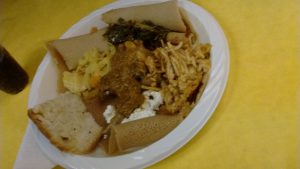 In the end, the Father introduced me to the Community and they welcomed me with pleasure and huge hospitality, inviting me to a traditional meal with them. I shared the dish with 4 other children and a mom: I understood that it’s a sign of friendship, hospitality, loyalty (“those who eat the same dish will not be betrayed”, they told me). I taste injera and gursha (when someone rolls a piece of injera, soak in wot and feeds us directly to the mouth – feed someone is a sign of friendship (“I like you, so, I food you”); receive someone’s food is a sign of hospitality and acceptance (it’s like a hug between friends) [“it’s only been a week ” and I already have been blessed with a little from “Ethiopia”!] it was the promise of a reunion on Sunday. On next Sunday, I’ll return there. it’s curious to repair that one of my first contacts, where I tried an experience of intimacy, and where I felt like «as baptism» to the Ethiopian culture and people, in deed, happened at Mass and with the sharing of meal. What a blessing!
In the end, the Father introduced me to the Community and they welcomed me with pleasure and huge hospitality, inviting me to a traditional meal with them. I shared the dish with 4 other children and a mom: I understood that it’s a sign of friendship, hospitality, loyalty (“those who eat the same dish will not be betrayed”, they told me). I taste injera and gursha (when someone rolls a piece of injera, soak in wot and feeds us directly to the mouth – feed someone is a sign of friendship (“I like you, so, I food you”); receive someone’s food is a sign of hospitality and acceptance (it’s like a hug between friends) [“it’s only been a week ” and I already have been blessed with a little from “Ethiopia”!] it was the promise of a reunion on Sunday. On next Sunday, I’ll return there. it’s curious to repair that one of my first contacts, where I tried an experience of intimacy, and where I felt like «as baptism» to the Ethiopian culture and people, in deed, happened at Mass and with the sharing of meal. What a blessing!
I’m ending. But not before noting that was not “only in Ethiopia” that the new year started. In some way, it’s how I feel also: starting something unique, ushering a new cycle and making the first steps on the Mission that God trusts me.
What title should I use? Love – the Community; the sharing; the service; the correction; … – Love is the title (and all the rest).
[Note: “one week has already passed,” and I (was/ have been) blessed with so many miracles, with so many meetings, so many experiences… and I’m confident that more things are coming because, in fact, ” it’s only been a week ” – ” I’ve come that they may have life, and have it abundantly. “(John 10:10)
Marisa Almeida, CLM in London




